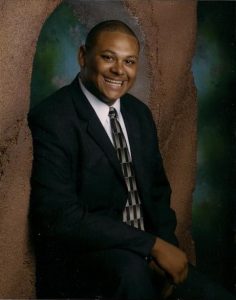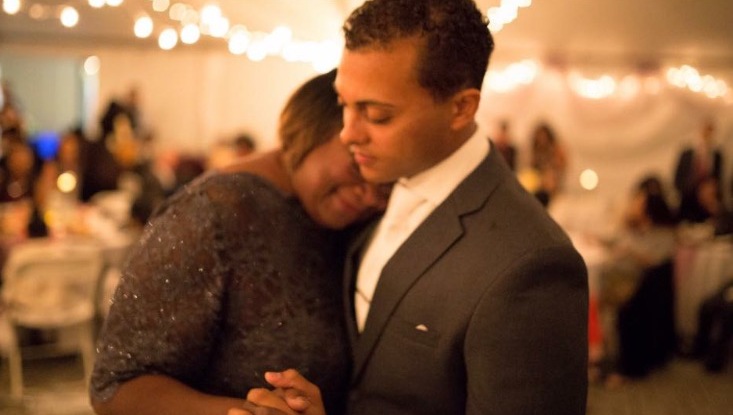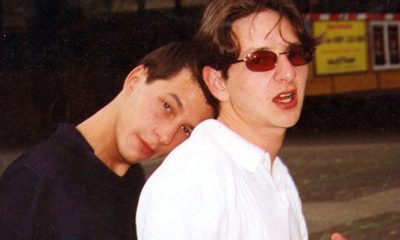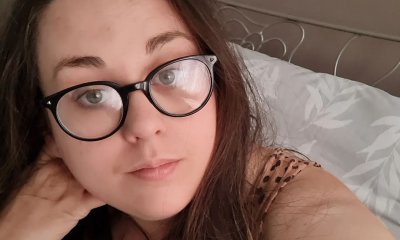By Tim Harris
“Tears are what remain of the memories we made.”
I never really thought about this when I wrote it some years ago, but the more it sat in my mind, and the more I meditated on this thought, grief is an ever-evolving part of our lives. We all can remember the day when grief took something precious from us. It comes into our lives and exacts a heavy toll, taking so much from us, creating waves of anguish, pulling us into its deep ocean, and leaving us in its wake of pain and hurt, gasping for even a breath of air.
When you first experience grief, there is no life jacket; you are treading the top of the water, wondering if this will ever end. There is no manual or safety guide for grief. Each person has to learn as they go. As we learn about grief, we understand more about forgiveness, and we feel and share the emotions that others face. But if we are not careful, it can turn us careless and make even the most loving person heartless. We don’t get to grow into the person we are. Grief aggressively pushes us into that change. It forces us to think about what gratitude is, while simultaneously making us face our fears about the fragility of life and truly understand that our time on this earth is short.
I’m sure we all know someone who has gone through grief and loss; I’m no different. My journey with grief started at a very young age. It’s an experience I wish I didn’t have to go through so soon. As an older person, you recognize what death is, but as a child, you don’t fully understand the implications and magnitude of losing someone so close to your heart. A child understands that their loved ones are no longer with them, and we should never underestimate their understanding. However, the permanency we think about as adults does not hit a child until much later. In my case, this experience held true.
Maybe it was a precursor to my life, but I was going to experience grief more than the average person my age. I’ve lost so many close to me. I’ve lost friends to suicide, experienced the loss of friends due to traumatic accidents, and faced the departure of loved ones due to natural causes. Unfortunately, it doesn’t get easier each time someone dies. Grief is something you don’t want to get good at. I wish I could say that grief is something you can make go away, but no matter how many times you hit “snooze” on it, it will be there when you wake up. Sure, it’s okay to snooze every now and then, but if you hit that button every single time, it only pushes you further from living in the present. It postpones the inevitable. Grief is something we don’t want to wake up to, but it’s there, and we do have to live with it for the rest of our lives. We do eventually have to wake up.
Grief has a way of making you truly envious of the multitude of people who have not had to go through loss until maybe their thirties and forties, but unfortunately, grief has an abundance of something we lack: time. It puts you through the worst time of your life. Grief looks over at us through a clear glass window and tells us, “I’ll wait.” It knows that we’re living on borrowed time. It knows that the ones we love will pass away and leave a void so large that everyone can see it. Whether the loss is caused by a traumatic event or an anticipated passing, it makes no difference.
We know it’s there; we see it daily, but it doesn’t personally affect us. We ache and hold onto those close to us. Murders, school shootings, missing persons—we know they happen to so many people around us, yet we continue with our lives. However, when it happens to us and we hear those words, “They’re gone,” grief recognizes and taps on the glass. We are transported back to the words, “I’ll wait,” and finally, that wait is over. We may forget about grief, but grief never forgets us.
I know grief exceptionally well. Perhaps it’s because I’ve experienced so much of it during my short time on Earth. I vividly recall my first encounter with grief, which I would later discover was a traumatic experience. When I was about six years old, my cousin, whom we affectionately called Bitty, and my great-uncle LV drowned. My great-uncle went to save Bitty while she was swimming, but tragically, both lost their lives that day.
I can still recall my family packing up and driving to the location to be with my mom’s family. You don’t understand why so many adults and older cousins are wailing, crying their eyes out, gasping for air, and looking so lost until you experience it yourself. Then, you attend the memorial, and for many, it is the last time they will see their loved one. In that moment, death becomes absolute. The loss becomes solidified, whether we admit it or not. We can continue to deny it, but we had to bury the person who was alive just a week ago.
As I got older, I understood the deep feelings and intense emotions my aunt and cousins experienced on that particular day. Having to look at a cold body devoid of life and knowing that it had once smiled, laughed, and had hopes and dreams, snatches the air away from your lungs. At that moment, I knew very little of grief. Little did I know that grief was preparing a five-course meal personally for me, with the death of both my grandparents, my brother, my mother, and my aunt, along with appetizers and dessert for the other close friends I lost. However, I want to focus on the two who truly impacted and shaped me into who I am today: my brother, Brian, and my mother, Darlene.
I vividly remember the day Brian died — the time of day, the crispness of the air, the stillness of my surroundings going quiet, and the words you never want to hear: “They’re gone.” I later realized that my surroundings didn’t go quiet; it was my body shutting down after hearing those words. The only thing you feel is a stupor, and the only thought that runs through your mind is ‘What? What? Huh?’ Your mind and mouth ramble, but it’s what happens afterward when you feel like you are being slowly suffocated. With my brother, I remember walking up to the hospital with my mom and sister. My mom had called me earlier and told me my brother was in an accident, and my sister was coming to pick me up from school so we could go to the hospital. I was in Mr. Also’s English period at the beginning of the day. Not one thought crossed my mind that my brother was dead. But that changed within 30 to 40 minutes.
My walk up to the hospital slowed to a slow pace when I saw my dad come out from the ER with his hand around the shoulder of a friend who had met him there. I can only remember him shaking his head. The shaking of the head told me all I needed to know. Silence, and then wailing in those moments. The person I was, 16-year-old Timothy, died at that same moment, and a new Tim was born — one I didn’t know, one who hadn’t experienced grief, and someone who would teach me many lessons throughout my late teens and early twenties. There were many screams that morning, and to be honest, I can’t tell you which ones were mine.
I can remember walking into the O.R. where he just died, his leg still broken, blood still on the floor, and still hooked up to the machinery. Quite honestly as I am writing I’m realizing I pushed that memory extremely far down. I don’t remember much about that day, but I do remember the broken promises from those who said they would be there for me. I remember them saying “I’ll be here” and then disappearing within one to two weeks. I felt like no one cared. I felt like no one had checked in on me. That caring and happy kid turned into someone else entirely. I was not the nicest person, though it may have seemed like it on the outside.
Understand: It’s easy to pretend everything is okay when it’s not. I can’t tell you how days I spent smiling, but secretly crying behind closed doors. I became really good at it, to the point where I was not sure who I was anymore. People ask if you are “okay” and you say “yeah” because you either don’t want to feel like a burden or you tell someone how you feel and they denigrate you, invalidate your feelings, or tell other people the private things you told them. In a way, I was playing two people, struggling to reconcile one while figuring out who the other person was. Simultaneously, I was trying to reclaim the part of me that had vanished into the depths of grief.
I came to understand that Tim, the Tim full of hopes and dreams was scattered to the wind. No matter how many pieces I found of him, so much was still missing. That version of me was gone, so I needed to rebuild myself back up using what I found. I can finally admit now the loss of my brother took so much out of me and altered the course of my life. Grief took so much away from me. It took away a budding relationship with my brother. It took away a young man who had so many dreams. I had to process that grief alone, feeling isolated. I held on to anyone who was there for me, which became a problem later on in my life. I did so much for others to keep them in my life, without realizing how much it was draining me and hindering my own healing process because I prioritized their feelings and emotions over my own well-being.
I had to read tips about grief, and I had to fail so much in order to figure out what worked best for me as I healed. In all honesty, I lost many of the emotions I currently have now: empathy, compassion, and kindness. I knew they were there but I suppressed them. There were times I looked at myself and wondered “ Who are you?” It didn’t improve for me; it worsened. Whenever I heard of someone losing a loved one, I shed no tears, I felt no pain, and I certainly felt no emotions toward that person. I only used to think, “They’re dead. Stop crying. Do you think the world stops? You aren’t the only person who lost someone!” I was sad and cold. I became cold-hearted, but deep down, I knew there was the person who would later be called a “walking heart” there.
As I healed, those emotions I felt I lost came back over the months and eventual years. I was becoming a new person. But grief, it’s always waiting, because it will always have clientele. It’s open 24/7 across different time zones. It neither eats nor does it sleep. It’s a bold and ruthless being. It flaunts its eternal life. It has no bias. It does not care what color you are. It takes from everyone regardless of their income. We can not stop it.
I can remember when my mom passed away. It was Wednesday, about 10 or 11 a.m. I was in my work office when I saw my dad calling. I didn’t want to admit it, but part of me knew. When your mom is on dialysis, you know she’s living on borrowed time. Yet, when they continue to live, a part of you believes they’ll live for another 30 years. So when I got the call, I knew. At that moment, everything stopped. I lived in another state then, which added to this feeling of hopelessness. You start to wonder if you did enough, if you called enough if you told them you loved them enough. You just want it to be enough, but will it ever be until you heal?
I remember crying so much I fell asleep on the way to the airport. I cried during my first layover and fell asleep only to wake up and cry myself back to sleep. I didn’t think you could run out of tears, but I was proven wrong because I felt like nothing was coming out of my eyes, but my soul was full of pain and heartache. Many tears were shed, because how do you cope with losing your mom? How do you fill a hole where you feel a large part of your personality comes from? Two versions of Timothy have died. The one who died after my brother was killed in a motorcycle accident, and then the second version of Timothy who was on his way to healing when my mom died of a heart attack in her dialysis chair. The only thing that brings me peace was that she was sleeping when it happened.
Life has a very weird way of reminding us of how insignificant we are but also allows us to make an unexpected impact on the lives of others. There is so much beauty in life; learning about ourselves, accomplishing goals we set when we were young, meeting new people, and setting new goals! But grief, grief makes everything we have in this life feel absolutely worthless. It forcefully makes us reconsider our life choices and what, if anything, we have accomplished in life. But there is still beauty in life after grief.
You have to heal at your own pace, but you cannot allow yourself to never enjoy life again. It’s not that time heals all wounds because you feel that wound every single day. However, you develop an appreciation for the life you still have. There’s a sense of guilt because why should we still be alive, laughing, seeing the beauty of this world, spending time with our loved ones, and enjoying life when they are gone? But why can’t we? Aren’t we still alive? There’s so much sadness in grief. Don’t let it take two lives. Don’t let it reduce you to nothing. I say these things because they were my exact thoughts. I dare not speak for everyone, and I won’t because I can only speak to my experience. For me, I had to find some way to heal. I knew if I stayed in my emotional state, I would lose everything including myself, and if that happened, I don’t know if I would ever be able to recover from it.
I guess this is where I blossomed into the third and current version of who we know as Tim. After losing my mom at a young age, I found that I was able to talk about grief, and not just an “Oh, I’m sorry for your loss” conversation. I was able to draw people out more by asking questions about their grief and getting them to open up. The more I talked to people about grief, I had the ever-evolving craving to want to research grief even more. It made me want to see how grief affects us at every level. I wanted to see the effect it had on the human body, and how it forced us to reshape our minds.
 So I started researching what I could find, and since grief is constantly evolving, so is our need to understand it and research it. I know not everyone is comfortable talking about grief, but I am, so I strive to be a voice for it. I don’t pretend to be an expert, because I am not. But I talk and share what I find. I use my own life experiences to help others. I know that each grief experience is innately unique, but we still share the thread of grief. By fostering open conversations, we create an environment where discussing grief becomes easier for everyone. People realize they are not alone, and the world appears less large, less lonely.
So I started researching what I could find, and since grief is constantly evolving, so is our need to understand it and research it. I know not everyone is comfortable talking about grief, but I am, so I strive to be a voice for it. I don’t pretend to be an expert, because I am not. But I talk and share what I find. I use my own life experiences to help others. I know that each grief experience is innately unique, but we still share the thread of grief. By fostering open conversations, we create an environment where discussing grief becomes easier for everyone. People realize they are not alone, and the world appears less large, less lonely.
Our grief is our personal grief. Comparing our grief and healing experiences to others does us no good. While it took me some time to process my own grief, I’ve witnessed others who have processed it quickly and made remarkable progress. On the other hand, there are also individuals who have experienced deep grief for years but are now beginning to understand how to heal and live for themselves. Our hearts need time to comprehend the magnitude of what has happened, while our brains already grasp it. Yet, that deep void in our souls longs for grace, and it is our responsibility to provide it.
It felt like I was meant to talk about grief, even though I resented that feeling. Sometimes it felt like grief specifically chose me. But it seemed like a purpose had presented itself to me. Do I enjoy talking about it? Not at all, but who does? Who willingly discusses something so sorrowful? However, someone has to initiate these conversations, right? I began discussing it more openly and offering support to those around me. When I realized that even a small impact on someone’s life was possible, I knew I could do so much more.
I’ve always enjoyed helping others, so why not try to provide as much value as I could, especially during such a difficult time? The fact that I was also a black man played a role in this. I didn’t see too many people who looked like me speaking on this. In the black community, death is present, but not many like to talk about it. It’s as if we put it off, it becomes easier to dismiss, but you can’t dismiss grief. It’s there. It’s present. We have to acknowledge those feelings, not only acknowledging the effects it’s causing but also providing relief and resources for those who don’t know where to go or where to start. We first have to start healing, but that doesn’t mean we can’t accept help from others.
That was when I knew it was time to start a page on grief, but I was never doing it for followers. If you start something for the applause, you’ve already lost your cause. A part of me did it to document how grief was affecting me, but it was also to see how I healed over time and how my version of grief changed over the years. I started providing personalized grief boxes to help those who were grieving. There were so many people who were unsure of what to get or say to someone whose loved ones had just passed, and I wanted to bridge that gap.
When I saw how people reacted, I knew I could help even more. There was a sense of joy I got from making these boxes. When that person received their box, they said, “This was the most thoughtful thing someone could have given me.” My heart was full of joy, and I knew I had to keep going. I’ve always wanted to provide value to others in some way, and this was how I was going to do it. It has evolved over time, and I find myself researching more, talking about mental health, grief, and the way in which we can heal. I created videos for children on creating memory scrapbooks, and I’m working at providing as much value as I can possibly can.
At the end of the day, I just want to help people. Even if I could help one person, then it’s always worth it. I don’t think of myself as some inspiring figure or visionary who is going to change the world. I am just a person who wants to help and is doing my best to make that happen. There’s a community of people who grieve, and the more we talk about it, the more we bring attention to grief and the struggles that befall us. It allows so many to talk about their experiences, personal or shared and gives us insight into how they healed. It allows those who berate themselves daily, to see the majority of those grieving have been through similar circumstances and are succeeding today. I know that guilt and those feelings of sadness may persist, but we can keep them in their place. Isn’t this why we write, talk, blog, podcast? It’s to help others, it’s to make them feel safe expressing their feelings, and if what I do helps more people, then that is alright with me.
“When we grieve, we breathe, and in the end: we heal.”
For more information about Tim, you can check out his website.
Support us by driving awareness!
Subscribe to our YouTube channel at YouTube.com/GrapGrief.
Follow us on Facebook at Facebook.com/GrapGrief and on Instagram at Instagram.com/GrapGrief.







